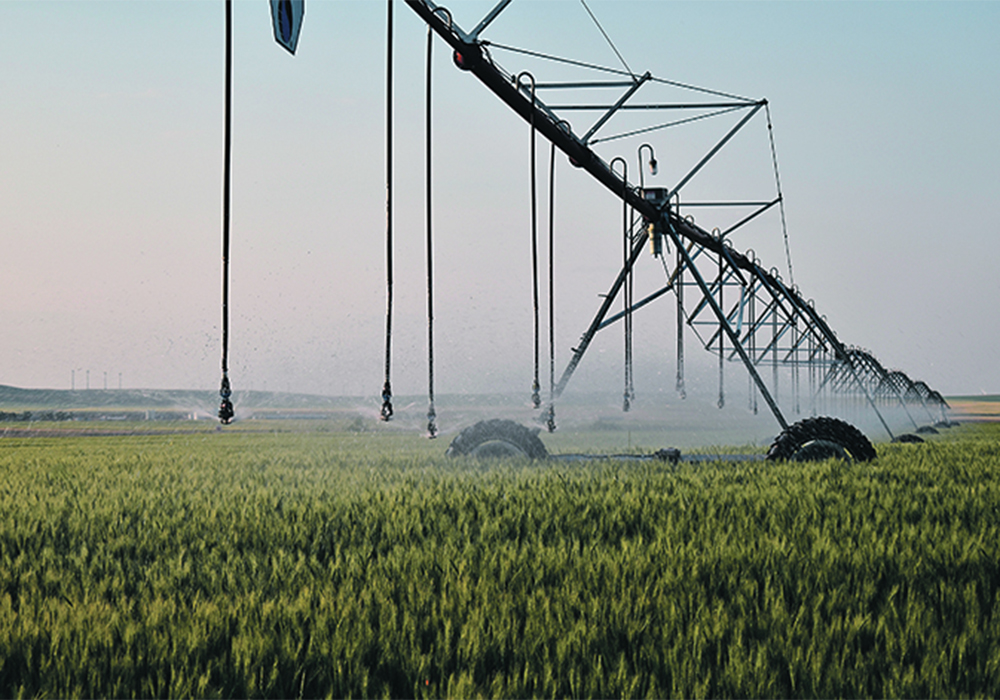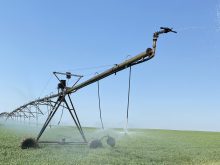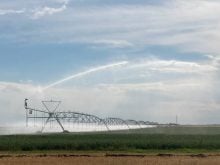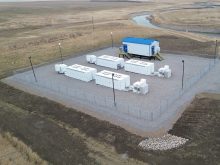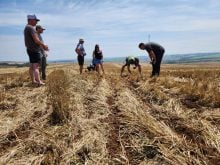Environment minister sheds some light on why First Nations blocked access to irrigation water but details are still scarce
It’s been 20 years since the signing of an agreement to settle longstanding disputes surrounding the creation of the Oldman Dam and its impacts on the Piikani Nation.
That settlement agreement is still in effect despite last month’s delay in allowing water to flow from the headworks of the Lethbridge Northern Irrigation District (LNID), according to Alberta’s minister of environment and parks.
“(Piikani) will honour all of those agreements that have been put in place,” Minister Jason Nixon told The Western Producer.
Despite those agreements, water wasn’t available to the LNID for about two weeks until a new, separate agreement was made on April 26 between the Alberta government and Piikani Nation to form a table to discuss issues.
Read Also

Agri-business and farms front and centre for Alberta’s Open Farm Days
Open Farm Days continues to enjoy success in its 14th year running, as Alberta farms and agri-businesses were showcased to increase awareness on how food gets to the dinner plate.
The exact details of what prevented irrigators and feedlots, which rely on the LNID, from accessing water remains unclear as access to the headworks is supposedly guaranteed under the 2002 settlement agreement worth more than $64 million.
The agreement states, “the Piikani provides Alberta with unhindered access to the headworks,” on conditions the First Nation receives the settlement amount along with annual payments which replaced those contained in the 1981 with the LNID for access to the irrigation infrastructure.
The agreement also stipulates the Piikani Nation and Alberta meet annually to discuss use of the waters subject to the settlement as well as establishment of a committee comprising two members each from the Piikani, Alberta and Canadian governments.
The settlement also provides a dispute resolution section outlining steps required to address matters arising from the agreement.
They include providing written notice of the issue and attempting informal resolution within two months, referring the matter for review to the settlement committee if the issue persists along with appointing a mediator and finally allowing for legal action if all else fails.
Nixon listed key Piikani issues leading up to the recent dispute, which disrupted water supplies to the LNID.
“The Piikani have concerns over their future, prosperity issues, long-term cultural impacts about the Oldman River, some of the impacts that have taken place on cottonwood (trees) — which is very important to the Piikani,” he said, listing other items such as “impacts on fish species, ongoing reclamation issues associated with changing conditions with a now dammed river.”
Many of those issues, at least on the surface, would appear to be covered or could be under the 2002 agreement.
That includes provisions in the agreement for the parties to evaluate how the Oldman River on the First Nation is being “currently affected or may be affected in the future as a result of the construction and operation of the reservoir.”
However, while the actual April 26 signed agreement between the Piikani and province to resolve the most recent issue isn’t being released publicly to either the members of the First Nation or Albertans, Nixon said it involves creation of a table to discuss the issues he outlined.
“What the Piikani agreed to at the end of this process was to respect and honour that (2002) settlement agreement and we’ll allow that process to continue to be what we utilize to be able to operate the headworks,” said Nixon. “And instead, we’ll move these cultural, economic conversations to a separate table.”
As for whether either the Piikani or Alberta failed to live up to its obligations under the 2002 agreement, Nixon said the agreement allows Alberta to access the headworks and “there was a period of time where the Piikani indicated they would not allow that to happen.”
That led to the most recent discussions with the Alberta government, which resulted in the creation of a separate table to resolve the Piikani Nation’s outlined issues, he added.
“The government agrees to start a new process to be able to deal with environmental concerns, cultural concerns and economic concerns that are not part of the (2002) settlement agreement,” Nixon said.
As for why the most recent agreement is not being released, Nixon said it’s common for governments across Canada to not make them public.
“We certainly will be respecting the wishes of the Piikani Nation to keep the sensitivity of those conversations between us so we can make sure to move forward in a positive way for everybody involved,” he said.
Nixon also criticized the former NDP government for not engaging with the Piikani.


